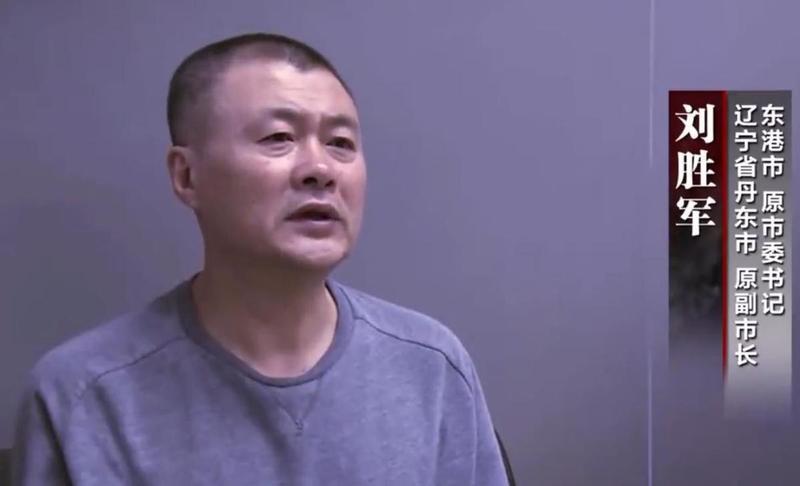 A screenshot from one episode of the documentary series Saohei Chu'e. (PHOTO / CHINADAILY.COM.CN)
A screenshot from one episode of the documentary series Saohei Chu'e. (PHOTO / CHINADAILY.COM.CN)
A six-episode documentary series depicting the nation's fight against organized crime has led netizens to call for further investigations and the removal of corrupt officials behind such crimes.
The series Saohei Chu'e, meaning "fighting organized crimes", was produced by China Media Group and broadcast late last month. It focused on 25 cases that were resolved during a three-year crackdown on organized crime that was launched by the central government in 2018. In each case, gangs had "protective umbrellas" that masked their crimes and helped them evade justice.
One of the cases mentioned in the series involved Deng Shiping, a maintenance worker at Xinhuang No 1 Middle School in Xinhuang Dong autonomous county, Hunan province, who was killed and buried by gangsters over 17 years ago for reporting the gang's illegal activities.
A local public security bureau official was bribed by gangsters to conceal evidence. The case came to light in 2019.
While summarizing the campaign on March 29, Guo Shengkun, a member of the Political Bureau of the Communist Party of China Central Committee and also head of the Central Committee's Political and Legal Affairs Commission, called for enhanced, ongoing measures to curb organized crime and the strengthening of rectification and education efforts in the political and legal system.
According to the commission, 3,644 mafia-like organizations and 11,675 criminal gangs were busted during the crackdown. Discipline inspection and supervision organs nationwide filed cases against 115,913 officials for corruption and sheltering criminal gangs, imposed punishments on 80,649 people and transferred another 10,342 people to judicial organs.
ALSO READ: Crackdown deals blow to mafia-style gangs
In February, the central government launched a two-phase rectification and education operation. The effort, which runs through October, targets deep-rooted problems in the political and legal system, including those involving related commissions, procuratorates, courts, public security organs and prisons at all levels.
In nearly all the cases, gangs had "protective umbrellas", some of which were provided by teams of political and legal officials. The teams disguised gangs' crimes and ignored reports from victims, so the ongoing operation is a necessary step to consolidate the results of the campaign and address issues, said Ji Naili, a professor of anti-graft studies at the Zhou Enlai School of Government at Nankai University in Tianjin.
He said many officials had turned themselves in since the operation began, and he expected that trend to continue.
By April 1, 16 inspection groups headed by ministry-level officials had arrived in 16 provinces and received reports from officials confessing to violations, the Political and Legal Affairs Commission said.
The first step of education has been effectively carried out, and the rectification phase will begin soon. Those who confess their violations will be punished leniently, but those who refuse to do so and whose deeds are subsequently discovered by authorities will be strictly penalized, Guo said at a conference on Tuesday.
He urged related departments to investigate and punish violators in a prudent and orderly manner and remove black sheep from political and legal organs to further enhance the public credibility of law enforcement and judicial work.
The political and legal teams shoulder the mission of cracking down on criminals, and they are also the last line of defense of justice, so the purity and cohesion of the teams are critical.
Yang Weidong, a law professor at China University of Political Science and Law
Yang Weidong, a law professor at China University of Political Science and Law, said the operation is a significant step in promoting safety and the establishment of the rule of law in China.
"The political and legal teams shoulder the mission of cracking down on criminals, and they are also the last line of defense of justice, so the purity and cohesion of the teams are critical," Yang said.
The quality of the teams has improved over the years, but some problems still exist, such as those related to carrying out their duties. The operation will inspect, analyze and correct the problems and help establish mechanisms to prevent the reemergence of such issues and improve the teams' capabilities, he said.
Ji said the effectiveness of the operation will also depend on the public's response. Citing the campaign against organized crime as an example, he said the public was active in reporting clues and helped investigators achieve good results. Therefore, inspection groups and related departments should attach importance to, and actively respond to, information from the masses.
The current operation has mobilized political and legal organs to resolve their problems. Yang said the effort mainly focuses on the teams, but the public should also be kept abreast of progress.
For instance, if investigated officials are found to be involved in corruption or wrongful cases, inspection groups should correct the behavior and promptly announce resolutions publicly, he said.
READ MORE: Xi extends congratulations to model crime-fighters
Contact the writer at yangzekun@chinadaily.com.cn


